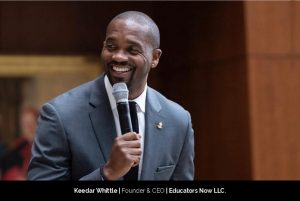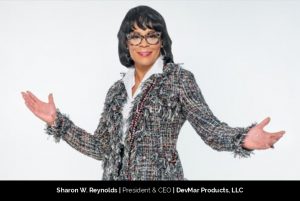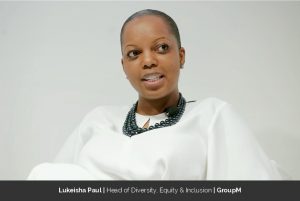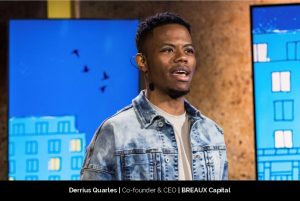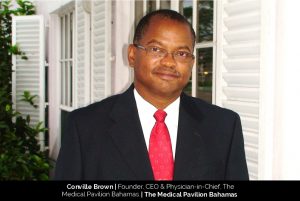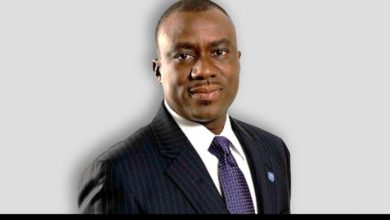Lenora Billings-Harris: Helping Organizations Effectively Leverage Diversity, Equity, and Inclusion in a Multicultural Workplace and Marketplace
Most Influential Black Corporate Executives to Watch in 2023
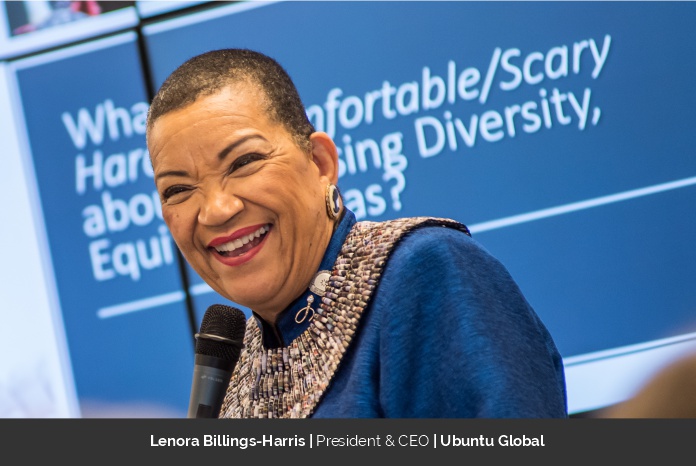
In today’s
complicated, dynamic, and varied world, the more interconnected we appear to
become, the more divided or separated our societies appear to become. As a
result, it is customary HR policy to indicate an equal opportunity employer.
While these phrases are casually used in daily business jargon, actively
embracing diversity, equity, and inclusion in the workplace is critical for
organizations to prosper.
Lenora
Billings-Harris, CSP (Certified Speaking Professional), is a CPAE Hall of Fame
speaker and an expert on inclusion, diversity, and bias. The Society of Human
Resource Management (SHRM) designated her one of the 100 Global Thought Leaders
on Diversity and Inclusion, and Diversity Woman Magazine named her one of the
twenty most significant diversity leaders in the United States. Her
award-winning diverse leadership studies have been published in academic
publications all around the world. She also serves on the Advisory Council of
the Nido Qubein School of Communication at High Point University and is adjunct
faculty at two additional universities.
She has spoken in over
40 countries and on six continents, and she recently keynoted the Inclusion
Conferences in Cape Town, South Africa and Tel Aviv, Israel to discuss best
practices with leaders in industry, government, education, and non-governmental
organizations.
Billings-Harris is the
co-author of Trailblazers: How Top Business Leaders are Accelerating Results
Through Inclusion and Diversity, as well as the author of The Diversity
Advantage: A Guide to Making Diversity Work, 3rd Edition.
Real Meaning of
Success
Lenora gauges her
performance by her customers’ results after she has worked with them to
increase their awareness of the benefits of a good DEI (diversity, equality,
and inclusion) plan. When it comes to DEI, she feels that good DEI leadership
entails much more than simply checking the box. Successful leaders recognize
how difficult it is to create an atmosphere in which team members and employees
are accepted and valued for their distinct viewpoints. They recognize that DEI
is not a program, but rather a way of being in their workplace culture. This
takes far more than simply attending a DEI workshop. Leaders must be
introspective about their biases and then take steps to disrupt prejudices that
inhibit team effectiveness. She asserts, “Inclusive leaders do their
internal work while they also support the organizational work to uncover and
eliminate inequities. They know that a DEI focus should be the responsibility
of every department, just as safety and expense management is.”
Becoming a
Promising D&I Leader
Lenora did not
establish her company over thirty-five years ago with the intention of doing
work in this field. Back then, workplace diversity was beginning to gain
momentum inside major firms, but corporate diversity experts were forced to
focus on compliance—EEO and Affirmative Action. Despite their desire to
accomplish more, many faced burnout owing to a lack of support. As a result,
she chose to concentrate her efforts on leadership development. However,
following one of her trips to South Africa, Lenora’s focus shifted. She shares,
“I had a life-changing experience that enabled me to see diversity and
inclusion in a different way. It was March 1994. Nelson Mandela would be
elected president the next month. In essence, at the end of a full-day
leadership development workshop, an Afrikaner woman walked up to me in tears.
She said that when she arrived that morning and saw that I, a black woman from
America, was the facilitator, she wanted to leave. She could not imagine what
she could learn from me. However, at the end of the day, she realized she
needed to be there because she needed to experience me as 100 percent
human.” Lenora was not facilitating a diversity workshop that
day, but her presence had a profound impact on her and disrupted the beliefs
she held about black people. Lenora also adds, “She and I talked and
cried together for a long time that day. As I processed the full experience
while flying home the next day, I realized that diversity was more than numbers
and inclusion was more than just the words we use.”
Lenora realized it was
about showing up authentically and creating a space for others to do the same.
She realized she had to find a way to do this work in her own unique way.
Turning Barriers
into Bridges
Because DEI is such a
sensitive topic to many, Lenora knew that not all clients would be in alignment
with what could or should be done within their organizations. Unlike
non-threatening topics such as customer service, time management, or how to use
technology, for some people, DEI threatens their beliefs. Lenora’s challenge
was and still is, to find ways to deliver the message in a way that people
could hear it. She says, “Some would assume that because I am black and
female, my “agenda” is to make white people feel guilty and make
black people and other under-represented groups “the victims.” Lenora
realized she had to figure out how to transform obstacles into bridges. She
finds her biggest triumphs to be when she can use stories that link to their
own life experiences. Lenora may then use that bridge to offer instances of how
different beliefs and biases affect work by presenting examples of how we, as
people with diverse life experiences, view everyday things differently.
UbuntuGlobal
Ubuntu is a Zulu
proverb that means “I am because we are.” We are because I am. This proverb
reflects the cornerstone of our thinking towards concepts, tactics, and actions
related to diversity, equity, and inclusion. UbuntuGlobal is a full-service
worldwide diversity, equity, and inclusion consulting and learning and
development agency, with a major focus on assisting organizations in
effectively leveraging diversity, equality, and inclusion in a global workplace
and marketplace. Its expertise is focused on addressing the impact of DEI on
organizational performance by assisting customers in creating and maintaining
an environment that attracts and keeps top people, appreciates inclusive
leadership, and improves business participation in the community.
Since its inception in
1986, UbuntuGlobal has provided diversity-related leadership development and
guided the implementation of organizational-wide strategies to help clients
develop an inclusive and fair work environment. Lenora Billings-Harris created
the firm after leaving the corporate and academic worlds, where she held senior
roles at two Fortune 100 firms and a major university’s business school.
UbuntuGlobal consultants may be found in the United States, South Africa,
Singapore, Sweden, Australia, and the United Kingdom.
Even while it does not
avoid difficult subjects, the team works hard to establish a secure,
non-judgmental environment that makes addressing delicate themes a rewarding
experience for everybody. Lenora states, “Most importantly, our clients
leave with knowledge to activate inclusive actions, and a deeper understanding
of the concepts for business and personal outcomes.” All programs,
processes, and resources reflect Lenora’s belief that we are all more
effective, productive, and innovative when we honor and value our own
uniqueness while at the same time valuing and respecting the differences of
others.
Words for Next
Generation of D&I Leaders
There is a wealth of
data to back up the idea that diverse and inclusive firms are more inventive
and successful than their less diverse competitors. According to Lenora, the
difficulty for the next generation of DEI leaders is determining how to
effectively help their leaders on the road to developing such a workplace.
Members of the public and internal team members want organizations to be open
about their support for DEI and the steps they are taking to eliminate
disparities. As she assists DEI practitioners in utilizing the research and
understanding that all individuals have bias and that it is natural, her aim is
that they will be able to direct their organizations on a successful DEI path
with personal and organizational gains.
Keeping Balance
“We know there
is always so much to learn in the DEI space, so we teach each other, share
experiences, and recommend books, podcasts, and other resources to deepen our
knowledge. Personally, vacations are a requirement each year” says Lenora. She regularly schedules what her
best friend calls “my day o’beauty.” It’s a day when she has a
massage, a facial, a manicure, and pedicure-a great way to relax.
Vision for Future
Lenora’s full-time concentration is on diversity, inclusion, and bias disruption. She works with companies to help them utilize their variety of thought in order to affect employee talent engagement and retention, consumer attraction, community relations, and corporate relations. Her compelling yet approachable manner motivates both virtual and in-person audience members to adopt personal and organizational actions that disrupt bias and accelerate bottom-line business results. She says, “We will continue to partner with leaders who want to make long-term sustainable change and are willing to do the personal work needed as well as the organizational work.” Her personal goal is to support other DEI practitioners on their road to success.









